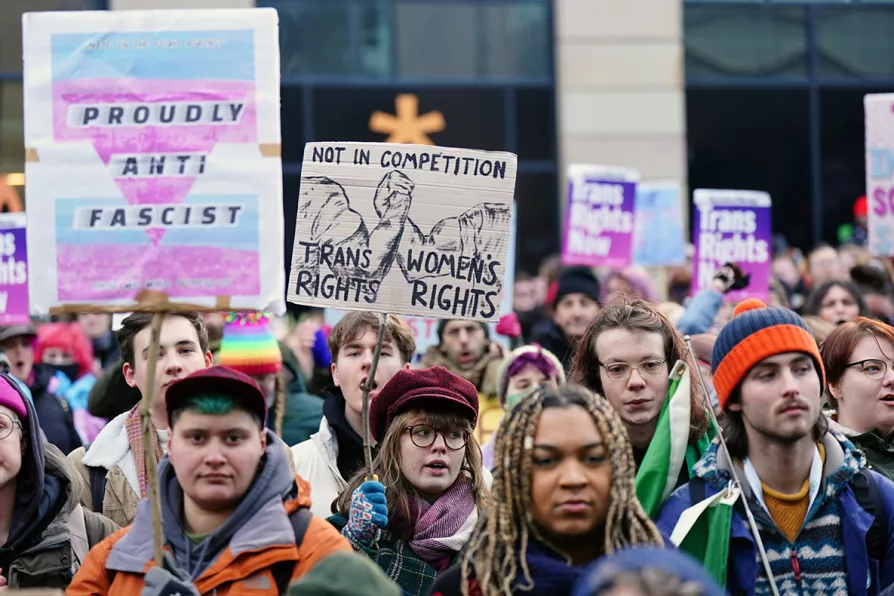Does widespread and uncontrolled use of AI change our relationship with scientific meaning? Or with each other? ask ROX MIDDLETON, LIAM SHAW and MIRIAM GAUNTLETT

 People take part in a demonstration for trans rights outside the UK Government Office at Queen Elizabeth House in Edinburgh, January 19, 2023
People take part in a demonstration for trans rights outside the UK Government Office at Queen Elizabeth House in Edinburgh, January 19, 2023
ONCE the golden ticket to public office and personal fortune, the job of Conservative leader has become markedly less glamorous. Shepherding the obliterated party through its wilderness years is nowhere near as much fun as plundering the ship of state while merrily throwing wastrels overboard.
Not surprising, then, that Suella Braverman ruled herself out of the contest as rumours swirled about her defection to Reform UK. Braverman’s strategy has been obvious since the Conservative Party conference last year, when her rousing and poisonous address contained a phrase — “gender ideology” — often heard at the rallies of Georgia Meloni, Viktor Orban and, of course, Donald Trump. But these populist chancers are not this article’s primary concern, because the phrase has also been employed in the pages of the Morning Star.
Gender ideology is a pejorative term for gender self-identification (self-ID), the principle that a person’s legal sex be determined by their gender identity, how they live in the world, rather than the sex assigned to them at birth, and should be made possible without the need for invasive medical diagnosis or humiliating legal procedures. Though implemented in 20 countries so far, its introduction in Britain has been fiercely opposed by those who think it a harmful conflation of biological sex and gender identity, and that material reality is being erased in favour of make-believe.

Looking for moral co-ordinates after a tough year for rational political thinking and shared human morality

Looking for moral co-ordinates after a tough year for rational political thinking and shared human morality

Sisters came together last weekend for the landmark launch of a new women’s group. ROS SITWELL reports

ROS SITWELL reports from the Morning Star conference on ‘Race, Sex and Class Liberation’ last weekend









